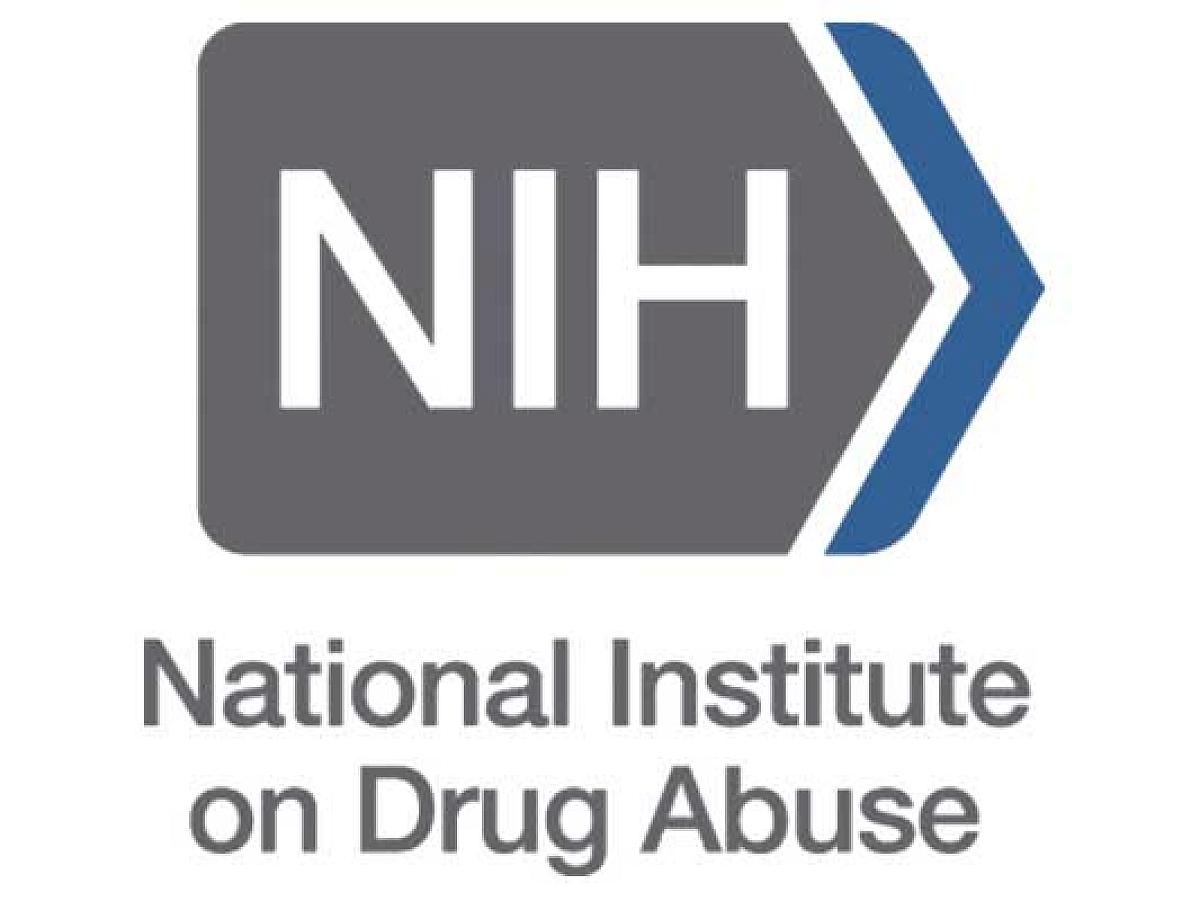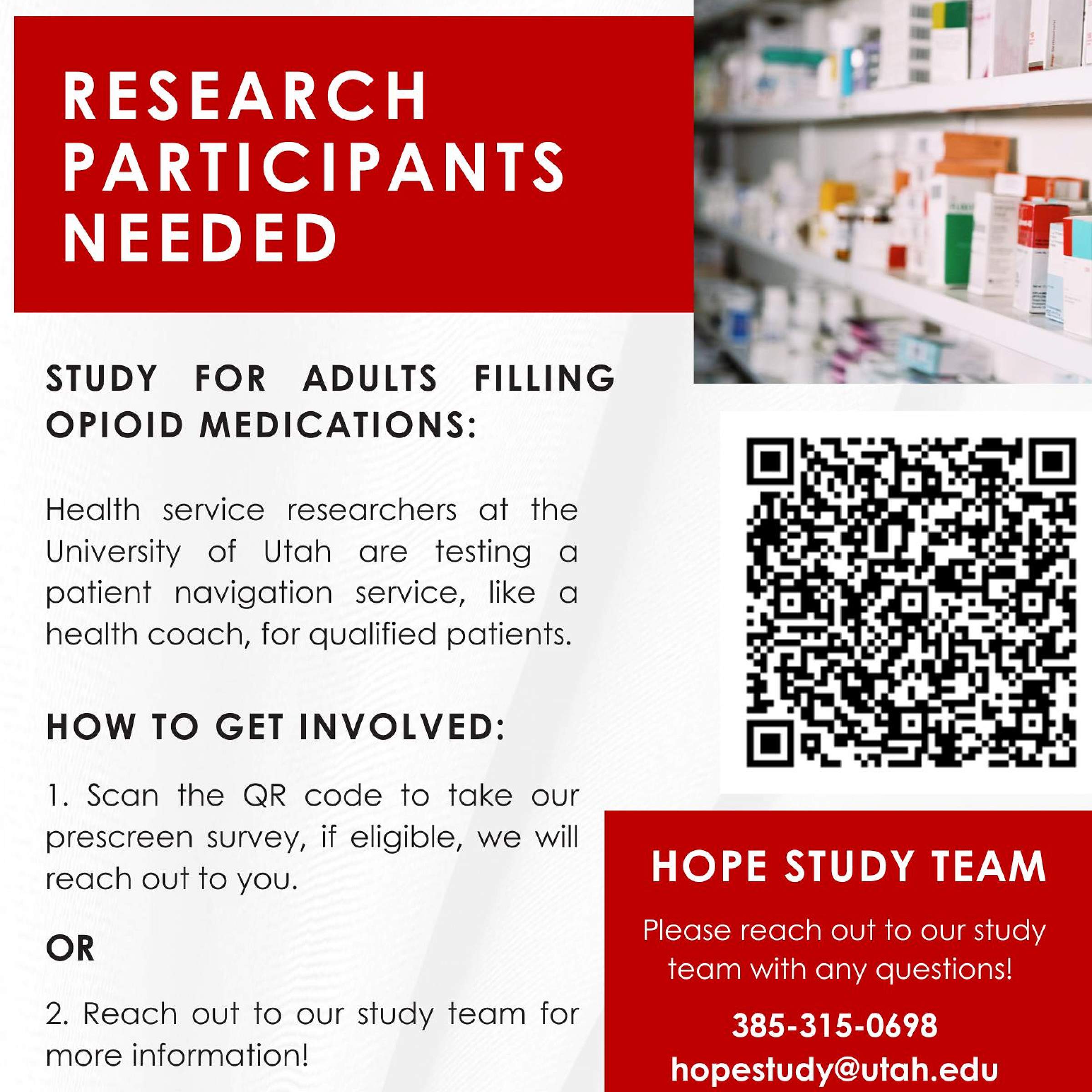
HOPE 2.0
STUDY OVERVIEW
The Healthy Opioid Prescription Engagement (HOPE) study 2.0, or HOPE 2.0, is a single-blinded randomized controlled trial to test the efficacy of Brief Intervention Medication Therapy Management (BI-MTM). Potential participants will be identified and screened at University of Utah community pharmacies, chain, and independent pharmacies in the Salt Lake area, or through the Human Subjects Research Tool (HSRT).
This study examines a community pharmacy-based intervention to reduce opioid medication misuse. Despite a recent national decline in opioid prescribing, 10.3 million Americans in 2018 reported misusing a prescribed opioid, and within this population, >36% of those who misused obtained the opioid medication by filling a prescription. The point of medication dispensing, namely the community pharmacy, is an untapped resource to address prescription opioid misuse—especially when considering the >60,000 pharmacies employing >170,000 pharmacists in the US. We have established preliminary data that provides important support for this project: (1) pharmacists are concerned about misuse but need training and resources to become involved; (2) community pharmacy patients can be screened successfully for misuse in these settings; (3) we have established an integrated care intervention amenable to current pharmacy practice—Brief Intervention-Medication Therapy Management (BI-MTM); and (4) our pilot data has shown support for feasibility, acceptability, preliminary intervention efficacy.
STUDY AIMS
- The first Aim will demonstrate that pharmacist-led BI-MTM intervention is superior to standard medication counseling (SMC) for mitigating opioid medication misuse. This will be accomplished by conducting a powered single-blinded randomized trial to test the efficacy of BI-MTM (n=175) vs. SMC (n=175). Participants will be screened/recruited for eligibility at point of dispensing in 14 community pharmacies in Utah, a high opioid prescribing and opioid-adverse event state. Participants will be assessed at baseline, 2, and 6 months for opioid medication misuse. Participant-level state prescription drug monitoring data will also be linked with patient outcomes to assess objective changes in medication misuse behaviors (e.g., early refills and doctor/pharmacy shopping).
- The second Aim will identify the pathway by which BI-MTM results in improvements for depression, pain, and subsequently opioid misuse. To accomplish this, a path analysis will assess relationships of BI-MTM: (1) on depression, pain, and misuse, (2) depression on misuse, and (3) pain on misuse.
- Our final Aim will explore latent transitions of baseline to post-intervention misuse classes by intervention group. This will be accomplished by using mixture modeling, specifically multi-group latent transition analysis. We will employ observed misuse indicators to estimate latent class transitions across time, grouping by treatment condition and adjusting for baseline covariates. Completing these aims furthers the understanding of BI-MTM efficacy and sets the stage for a national multisite trial.
STUDY TEAM
Principal Investigator:
- Gerald Cochran, PhD, MSW
Co-Investigators:
- Nicholas Cox, PharmD, BCACP
- Adam J. Gordon, MD, MPH
- Akiko Okifuhi, PhD
- Carina Jackman, MD
- Jincheng Shen, PhD
- Ralph Tarter, PhD
- Craig Field, PhD
Study Staff:
- Project Manger: Kristi Carlston
- Study Coordinator: Grace Broussard, SSW
- Patient Navigators: Katie Kinsey, LCSW and Ashley White, CMHC
STUDY SPONSOR
This study is sponsored by the National Institute on Drug Abuse (NIDA).
The mission of NIDA is to advance science on drug use and addiction and to apply that knowledge to improve individual and public health.

CONTACT US
Have Questions?
Contact Grace Broussard at hopestudy@utah.edu or (385) 315-0698 for more information.
